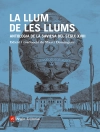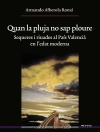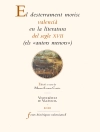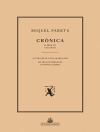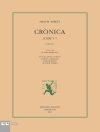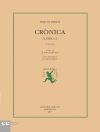The Austrian writer Hugo von Hofmannsthal (1874-1929) was one of the great modernists in the German language, but his importance as a major intellectual of the early twentieth century has not received adequate attention in the English-speaking world. One distinguished literary scholar of his generation called Hofmannsthal a ‘spiritual-moral authority’ of a kind German culture had only rarely produced. This volume provides translations of essays that deal with the Austrian idea and with the distinctive position of German-speaking Austrians between German nationalism and peoples to the East, whether in the Habsburg Monarchy or beyond it, as well as essays that locate Hofmannsthal’s thinking about Austria in relation to the broader situation of German and European culture.
Tabla de materias
Foreword
Preface
Introduction
1. The Poet and Our Time (1906)
2. Boycott of Foreign Languages? (1914)
3. The Affirmation of Austria (1914)
4. Our Foreign Words (1914)
5. We Austrians and Germany (1915)
6. Grillparzer’s Political Legacy (1915)
7. Austria in the Mirror of Its Literature (1916)
8. The Idea of Europe (1916)
9. The Austrian Idea (1917)
10. The Prussian and the Austrian (1917)
11. Adam Müller’s Twelve Lectures on Eloquence (1920)
12. Three Small Observations (1921)
13. K. E. Neumann’s Translation of the Holy Writings of the Buddhists (1921)
14. View of the Spiritual Condition of Europe (1922)
15. New German Contributions (1921)
16. Czech and Slovak Folk Songs (1922)
17. Address on Grillparzer (1922)
18. Stifter’s
Indian Summer (1924)
19. The Written Word as the Spiritual Space of the Nation (1927)
20. The Value and Dignity of the German Language (1927)
Bibliography
Index
Sobre el autor
David Luft received his BA in comparative literature from Wesleyan (Connecticut) in 1966 and his Ph D in modern European history from Harvard in 1972. He taught for thirty-six years at the University of California, San Diego. He joined the Department of History at Oregon State University in the fall of 2008 as Thomas Hart and Mary Jones Horning Professor in the Humanities.


